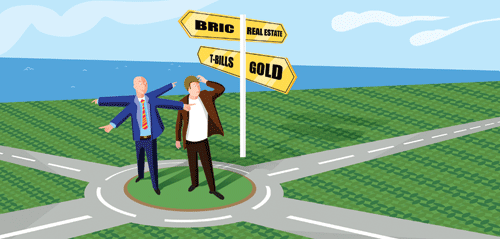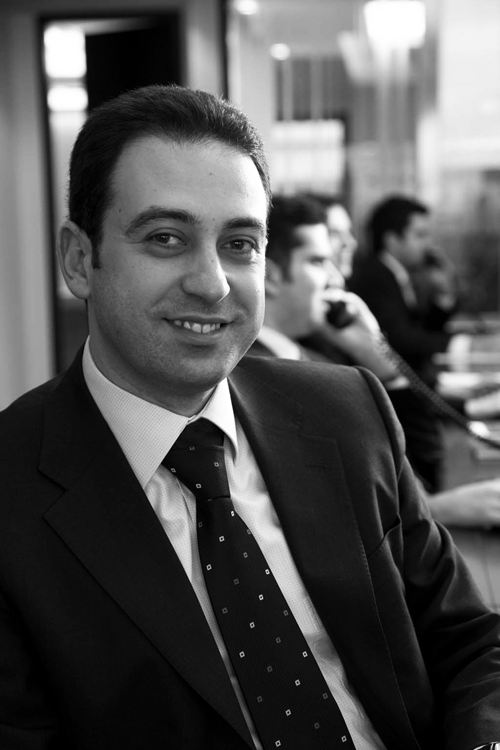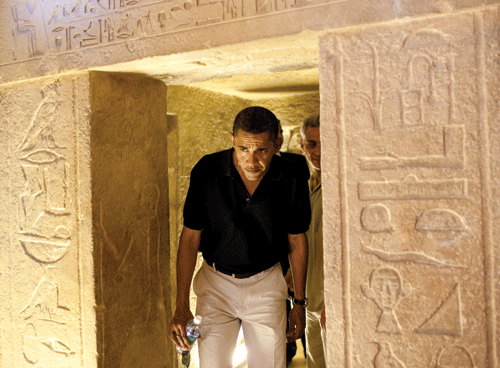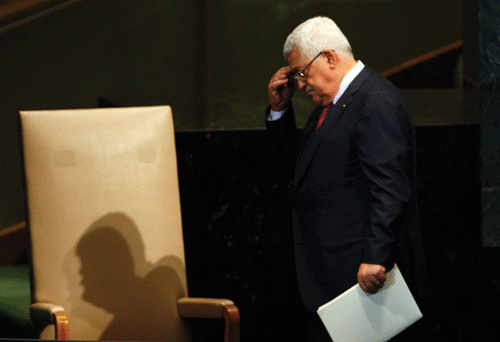The cataclysmic crash in global financial markets in 2008 was a smack in the face with a wet fish for both bankers and investors alike. A new reality emerged in its wake: gone were the days of carefree flurries into magnificently low-risk and high-return financial products fueled by seemingly boundless levels of borrowing. After a high-octane binge of hedonism and excess the hangover kicked in.
Many investors, left reeling from their losses, woke up to the sober realization that, in the words of Al Ahli Investment Group Managing Director Nael Raad, “nothing is safe”. Daniel Diemers, principal at Booz &Company, explained: “Clients shifted their assets towards simple, transparent, liquidity-oriented products with lower margins. Structured products in particular fell from favor, and clients largely retreated from risky and complex asset classes.”
From Spring 2009 to late 2010, confidence returned to the markets and many investors were once again upping their risk threshold to try and recoup their losses. But the bonanza was short lived. Profound structural defects in the United States and Europe have been hounding their economies and fear has reentered the market.
Safety first
Many of the private bankers who spoke with Executive for this special report said the turmoil in the markets has instigated a shift in mentality amongst clients. “People only learn from their mistakes,” said Khaled Zeidan, general manager of securities and structured products at Med Securities Investment, “and people have been burnt a lot here.”
According to AM Financials Managing Director Mohammed al-Hamidi, “In general, the environment is very conservative. Not a lot of people are taking risks and that’s why we see that yields on bonds in the US are going down, the stock market is very volatile… [Clients] are not trusting anybody”. It is a classic case of once bitten, twice shy.
Whilst there are still gamblers and seasoned traders seeking the quick buck to be made in the storm, most clients have shifted their expectations. Preservation of capital has usurped quick-fire trading as the order of the day. Head of Private Banking at BlomInvest Bank Georges Abboud said: “We are educating the bankers and the clients to move from a trading mentality to a more diversified, long term strategy.”
Abboud claims, however, that investing in equities can still be considered a responsible option if played right. “If there is a high yield, say 8 percent, low debt, and you have reliable revenues over the coming five years, then buy! There is a risk it could go down with the market but I am comfortable with the risk.”
Private bankers consider a core aspect of their work to educate and inform the clients. But Jean Riachi, chief executive officer of FFA Private Bank, has found that convincing the Lebanese client to ignore the short-term vicissitudes of the market is not always an easy task. “We would like to convince people to forget about the volatility in the short term. But people are very difficult to convince, they have to look almost daily, in any case monthly, at their net worth, and they will panic anytime you have a fall in this valuation,” he said.
Paranoia’s parade
The rotten roots of today’s market instability are sunk in the very shores that have long been the bedrock of the global economic system.The 2008 banking crisis, the Eurozone sovereign debt crises and the US credit rating downgrade have upended many previously held assumptions about what is a‘safe investment’.
According to Al Ahli’s Raad, “what’s risky nowadays are definitely the international banks in the US and Europe and sovereign bonds in Europe.”
BlomInvest’s Abboud considers the western banking system a toxic miasma as well. “I have been telling the team since 2008 not to invest in any Western European or American banks. When the rates are low they don’t make money, and there is all the junk around in terms of assets, and they are having to make provisions on all the problems that have happened with the governments. We cannot know what the banks hold in terms of assets so you have to get away,”he said.
The sovereign debt traumas continue to hector the Eurozone, and what’s beyond the horizon is far from certain. The very real prospect of a Greek default would pose a significant threat to the solvency of the banks in Europe’s core nations of France and Germany (who hold substantial amounts of Greece’s outstanding debts). And that’s before we dare to look at Europe’s other tottering members Ireland, Spain, Portugal and Italy. A recent indication of the markets’ unease with the Eurozone is the almost 130 billion euros [$187.75 billion] banks are parking overnight in the European Central Bank’s deposit facility rather than lending to other banks.
FFA’s Riachi explained that the Euro-crisis presents a new and hostile territory for economists and bankers due to the fact that such an array of national economies are tied into a single currency. There is no real precedent to base their analysis on. “I don’t know what kind of solutions they will find but it’s really a very deep crisis and it needs to be solved as soon as possible. Germany needs to show leadership on this issue; otherwise they have to renounce the Eurozone,” he said.
Across the Atlantic, the US is also proving an insufferable headache for private bankers as they strive to offer sage advice to their clients. Opinions on whether it is going to relapse into a double dip recession remain divided but few disagree with HSBC Private Bank Managing Director Rudy Sayegh’s assessment that “everyone [American and European governments and consumers is up to the hilt in debt, so their capacity to spend is limited and thus what will come is slow growth, if not recession, but in a best case scenario slow growth for several years.”
Despite the recent debacle over America’s debt, some private bankers still view it as a safe investment. “They downgraded the debt and at the same time the bond yield went down. You should have expected the contrary. So people still believe it is a safe haven,” said Abboud.
For Jean Riachi, the political fiasco of the debt ceiling debates, replete with playground histrionics and stern-browed brinkmanship, was as damaging as the underlying economic ills. “In the US, I think it was more of a leadership issue, and it was clearly stated by Standard & Poor’s when they did the downgrade that they know there is no doubt about the ability of the US to repay its debt,” he said.
In any case American markets remain in a somewhat battered and disheveled state. When US companies released their mid-year reports at the end of July, they had much lower guidance for future earnings, a warning sign for equity markets. According to Sayegh, “People are selling equities on the concept that if you don’t have growth now the market should not be valued at this level but at less in terms of private equity.”
Counting the fundamentals
Despite the woes in western markets, several bankers warned against overstating the case. When asked if investors should disassociate from European and American markets, MedSecurities Investment’s Zeidan sought todownplay reasons for alarm. “Let’s not be ridiculous. Despite all the problems and issues we have today in the US and Europe, these are mature markets. There are sound laws and there is protection for the investor.”
Nada Safa, regional manager for Audi Saradar Private Bank added: “You have to choose growth stocks. Look at the US and all the blue chips and growth stocks. It is true that they went down but we know that at the end of the day they will go up.”
While there may still be promise in western markets, it is clear there has been a shift in perceptions and investors are increasingly looking elsewhere. “Is it the time to invest in emerging markets? It’s been the time for 10 years,” said Georges Abboud.
The Institute of International Finance (IIF) is projecting increases in overall net private capital flows to emerging markets this year to more than $1 trillion, after a 54 percent rise to $990 billion in 2010. IIF Managing Director Charles Dallara said, “The high level of capital flows to emerging markets reflects the rising weight of these economies [globally] and their very strong performance relative to mature economies in recent years.”
Nonetheless, Raad warned that investment in emerging economies still poses potential risks, and only informed and specifically targeted investments should be made. “You need to be much more selective. It’s not regional anymore. Which sector, which companies, which currency, you have to be selective. It’s not a broad idea like it used to be.”
Although private bankers are increasingly searching out those fruitful opportunities in emerging markets, it is still the US that sets the tune for the world to dance to. It is just unfortunate that the record is stuck on a Waltz and not a Polka.
Audi Saradar Private Bank’s Safa, speaking about Brazil, Russia, India and China, said: “they are all linked to the US, and you know if the US sneezes the whole world gets the flu. I think they are solid but still no one allocates more than 10 percent to 15 percent to emerging markets.”
Abboud agreed the US was still a dominant force in the global economy but argued the shift east was ineluctable. “The US market is still a big driver for the rest of the world, and it will remain that way because of its consumption. In time, though, it will de-correlate, and I am a firm believer that you have to move your money away to Asian economies, and to move away from the US dollar,” he said.
With over 60 percent dollarization of Lebanon’s banking assets, investors are increasingly mindful of minimizing their exposure to a potentially precipitous decline in the value of the dollar. Reto Bartel, senior representative at UBS AG in Beirut, said, “We expect major currencies to remain relatively unattractive in the quarters ahead. When diversifying their US dollar and Euro exposure, investors might think of the Scandinavian currencies, the Canadian dollar and several Asian currencies.”
Looking ahead
The disorienting upheavals of the past couple of years have been a wakeup call to many investors, and private bankers now talk of customers being both better informed and more demanding. “They want to know everything,” said Abboud.
What is more, private bankers in Lebanon say their clients now have somewhat more realistic expectations with regards to protecting their capital and expanding their wealth. While the Lebanese predisposition to take risks has not been completely snuffed out, a more conservative approach to asset management now prevails.
The problem is that there are no longer any true safe havens. In the words of Zeidan, “there is no longer one black swan; there are 100…so we should not take anything for granted.”












